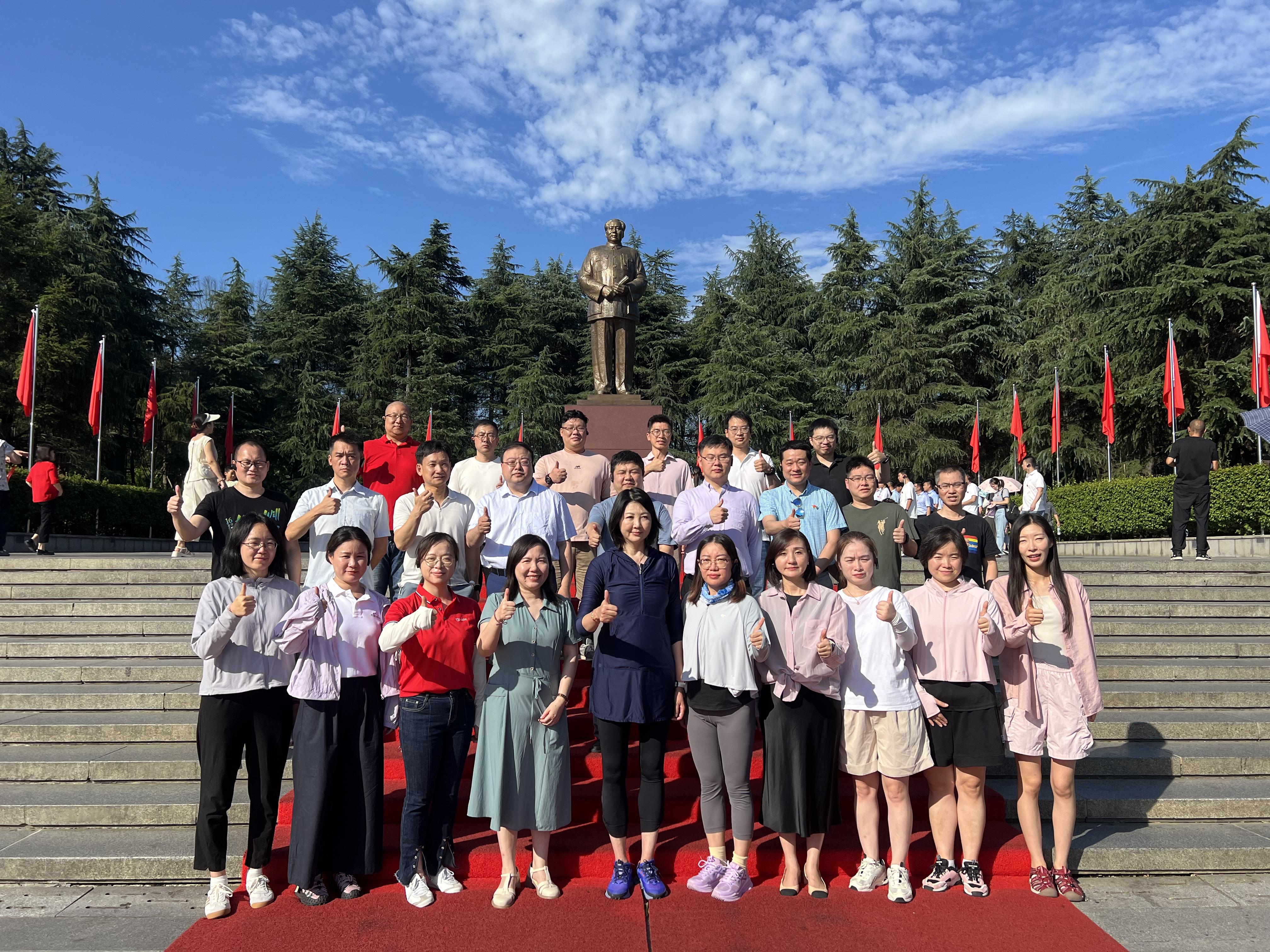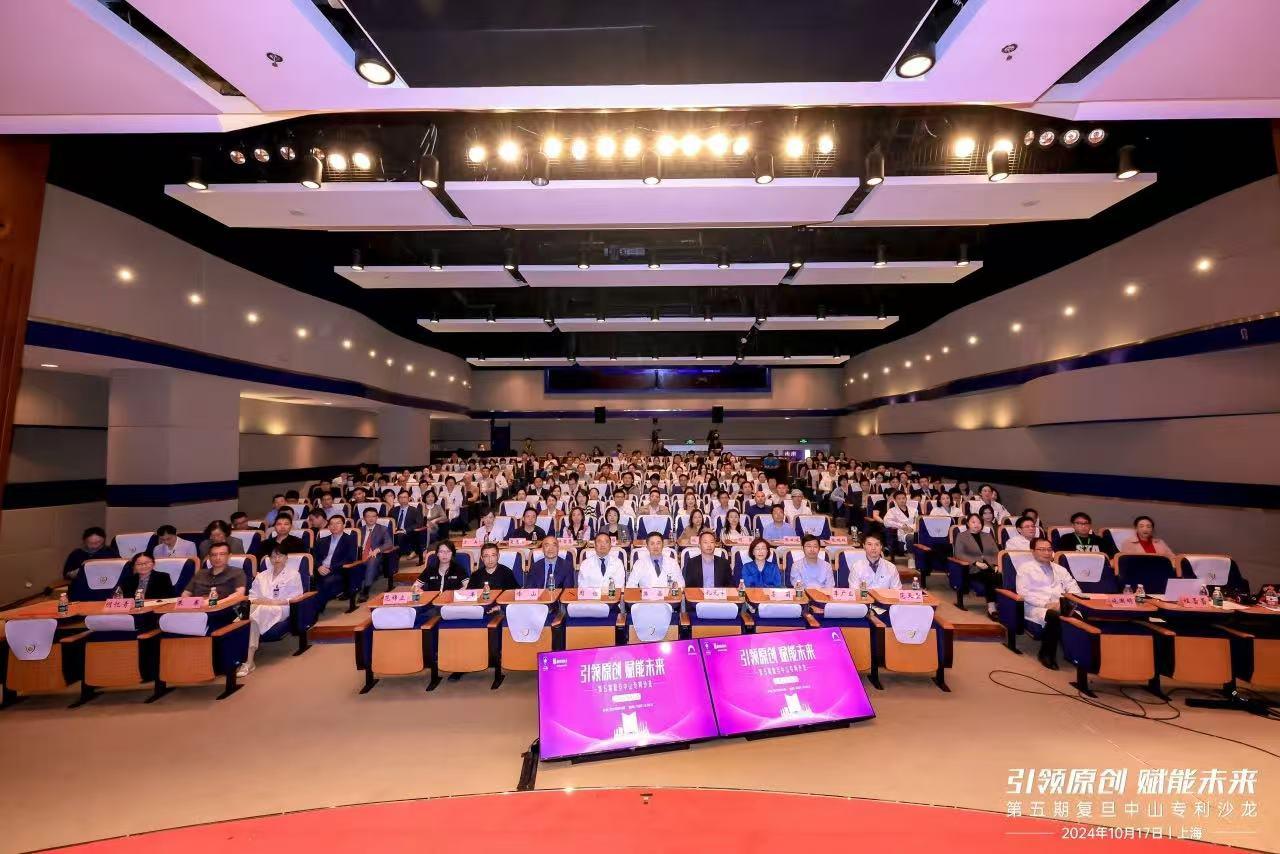Youth Wisdom, Excellence in Lingyun Mountain | The First Zhonghui Medical Innovation Incubator Innovation Transformation Salon Successfully Held

On August 8, 2024, the first "Youth Wisdom, Excellence Lingyun Mountain" Zhonghui Medical Innovation and Transformation Salon was successfully held in the conference room on the 2nd floor of Zhonghui Medical Innovation Incubator. This event is jointly organized by Zhonghui Medical Innovation Incubator and Dunwill Medical, aiming to timely share the latest global medical research achievements, exchange innovative transformation experiences, and invite young clinical researchers and enterprise R&D personnel through salon to explore global hotspots, share experiences and difficulties in clinical research, and jointly create a truly free, open, and enterprising platform for scientific research transformation cooperation and exchange. The event attracted young clinical experts from 14 departments including Hepatology, Cardiology, Gastrointestinal Surgery, Pancreatic Surgery, Thoracic Surgery, Laboratory Medicine, and Pathology at Zhongshan Hospital.

At the beginning of the event, Professor Song Zhenju, Vice President of Zhongshan Hospital affiliated with Fudan University, delivered a passionate opening speech. He expressed his earnest expectations for this event, as well as his support for the development of the youth science and technology innovation field. He hoped that through the organization and implementation of this series of salon activities, wisdom can be gathered from all parties, allow young scholars to fully showcase their scientific research achievements, promote academic exchanges, enhance technological innovation, promote industrial development, and inject new momentum into China's science and technology innovation industry. And he sincerely wished this event a big successful.
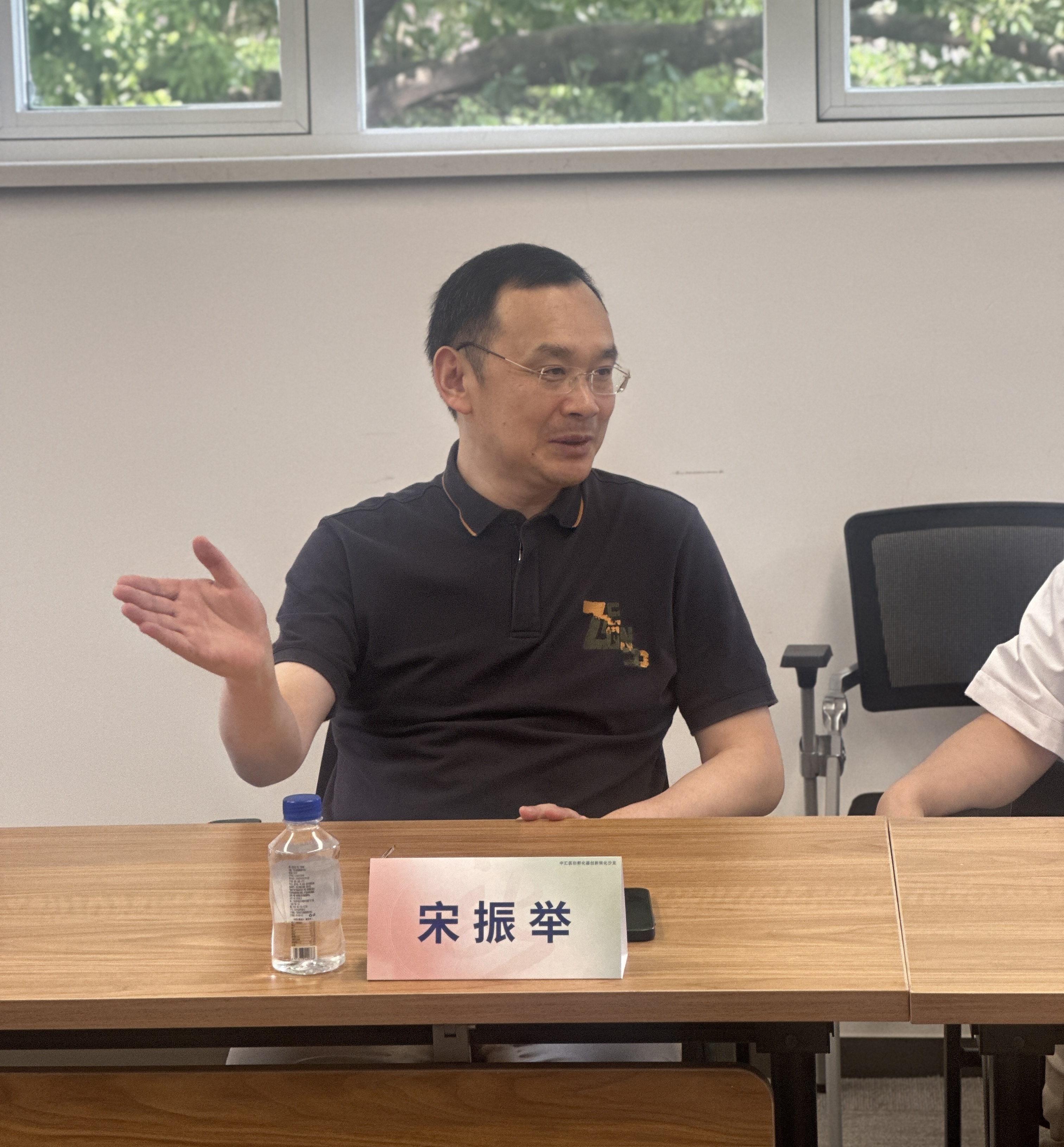
In the subsequent presentation session, Professor Sun Yunfan from the Department of Hepatology and Oncology at Zhongshan Hospital affiliated with Fudan University shared a keynote report titled "Spatiotemporal Evolution Atlas of Liver Cancer Metastasis and Relapse and Its Clinical Significance", bringing a wonderful academic feast to the attending guests.
The metastasis and recurrence of liver cancer are complex temporal and spatial processes with multiple steps. How disseminated liver cancer cells evolve and reshape the microbiota in circulation, liver, and distant organs to promote their metastasis and recurrence is a scientific problem that still needs to be solved. Professor Sun Yunfan's team conducted a series of studies on circulating tumor cells (CTCs), intrahepatic recurrent lesions, and distant metastases in liver cancer. Research on CTC has found that it is an independent predictor of liver cancer metastasis and recurrence (Hepatology 2013). Its transcriptome undergoes dynamic evolution during venous dissemination and can recruit Tregs to achieve immune escape (Nature Communications 2021). CTC escapes NK cell attacks by adhering to platelets on its surface (Hepatology 2024), proving that metastasis and recurrence are the result of a game between tumor cell factors and environmental factors. For primary and recurrent liver cancer, the single-cell level reveals a completely different immune ecosystem between the two. Recurrent liver cancer cells shape the immunosuppressive ecosystem of recurrent liver cancer through loss of new antigens and PD-L1 (Cell 2021). In addition, the team established a primary/metastatic/recurrent tumor biological sample library containing 182 liver cancer patients. Professor Sun Yunfan, together with Dunwill Medical and ShanghaiTech University, used multiple omics methods such as WES, RNA seq, immunohistochemistry library, spatial transcriptome, array pathology analysis, and PDO model to trace the genetic origin of liver cancer metastasis. It was found that the tumor microenvironment of Wnt wild-type and Wnt mutant subclones was different and affected the selection of metastatic clones (Cancer Cell 2024).
In addition, Professor Sun Yunfan's team collaborated with Dunwill Medical and Huada Research Institute to construct spatiotemporal multi omics teaching data for primary metastasis pairing of liver cancer patients and small animal models, and established spatiotemporal multi omics datasets and digital pathology datasets at the single-cell scale. He pointed out that research on liver cancer metastasis and recurrence requires a spatiotemporal perspective. This study will further explain the molecular mechanism of primary liver cancer metastasis in the Chinese population, further reveal the biomarkers of innovative target therapy in the Chinese population, further promote the evolution of liver cancer treatment pattern, and may further improve the treatment effect of future liver cancer.
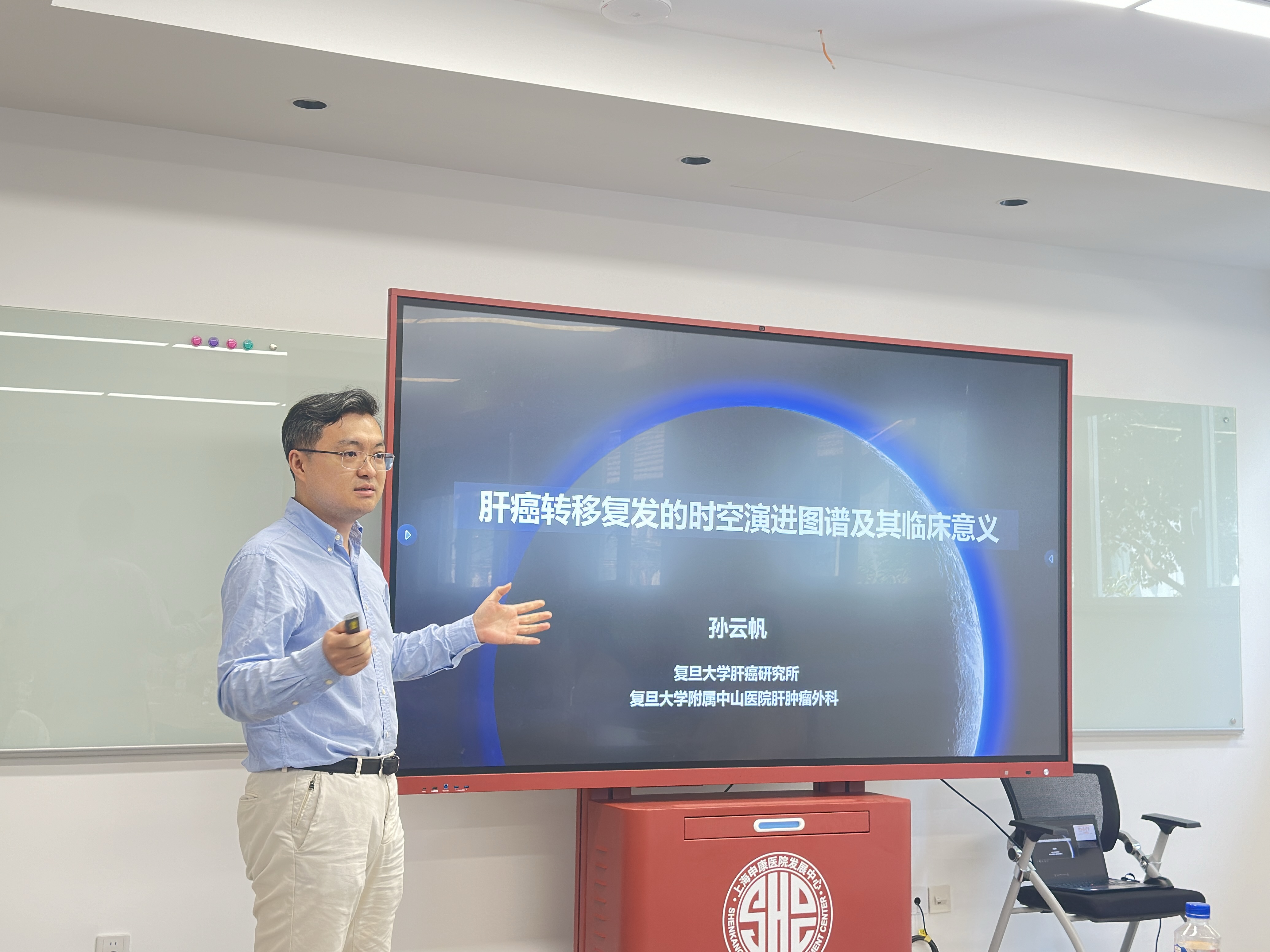
The second guest speaker is Professor Xue Ruidong from Peking University Yunnan Baiyao International Medical Research Center, International Cancer Research Institute, and Peking University First Hospital Tumor Transformation Research Center. He shared a brilliant report titled "Spatiotemporal Precision Analysis of Tumor Clone Evolution and Microenvironment".
Tumor heterogeneity is currently the main obstacle to precision medicine in cancer. Tumor heterogeneity provides a molecular model for exploring clonal evolution, and the tumor clonal evolutionary tree is shaped by its microenvironment. Professor Xue deeply combines new technologies such as single-cell/spatial/multi omics, bioinformatics methods, and functional experiments to explore new mechanisms of mutual regulation between tumor clonal evolution and microenvironment, as well as new targets for precise cancer diagnosis and treatment. In 2022, he first classified liver cancer patients into five immune microenvironment subtypes at the single-cell level and named them the TIMELASER typing system. He also elucidated for the first time the heterogeneity of tumor associated neutrophils (TANs) and their molecular mechanisms for inhibiting tumor immunity, providing a new direction for immunotherapy of liver cancer (Nature 2022). In the same year, he also systematically explored the heterogeneity of liver cancer at the single-cell DNA level and proposed for the first time the discontinuous and progressive biphasic evolution model (DPCNE) of liver cancer. He found that liver cancer with longer progressive stages was more severe, and identified CAD as a promising biomarker for predicting early recurrence of liver cancer, supporting the diploid origin of polyploid liver cancer. This study provides key information for the clinical diagnosis and treatment of liver cancer, and gastroenterology has also published a concurrent review, highly praising this study (Gastroenterology 2022).
In addition, Professor Xue also focused on an early tumor with high incidence in China - acromegalic melanoma (AM). Based on a cohort of 287 patients, he used multi omics methods to analyze the clonal evolution process from in situ (AMis) to invasive AM (iAM), and discovered two different evolutionary patterns during the expansion of iAM regions. At the same time, he established the molecular typing of AM. Ultimately, it was found that driver mutations and accessory involvement can predict AMis invasion, while APOE and CD163 can be used to predict the prognosis of AM. This study provides an important theoretical basis for the clinical diagnosis and treatment of acromegalic melanoma (Cancer Cell 2024), and was also selected as the cover paper of Cancer Cell (June Issue, 2024).
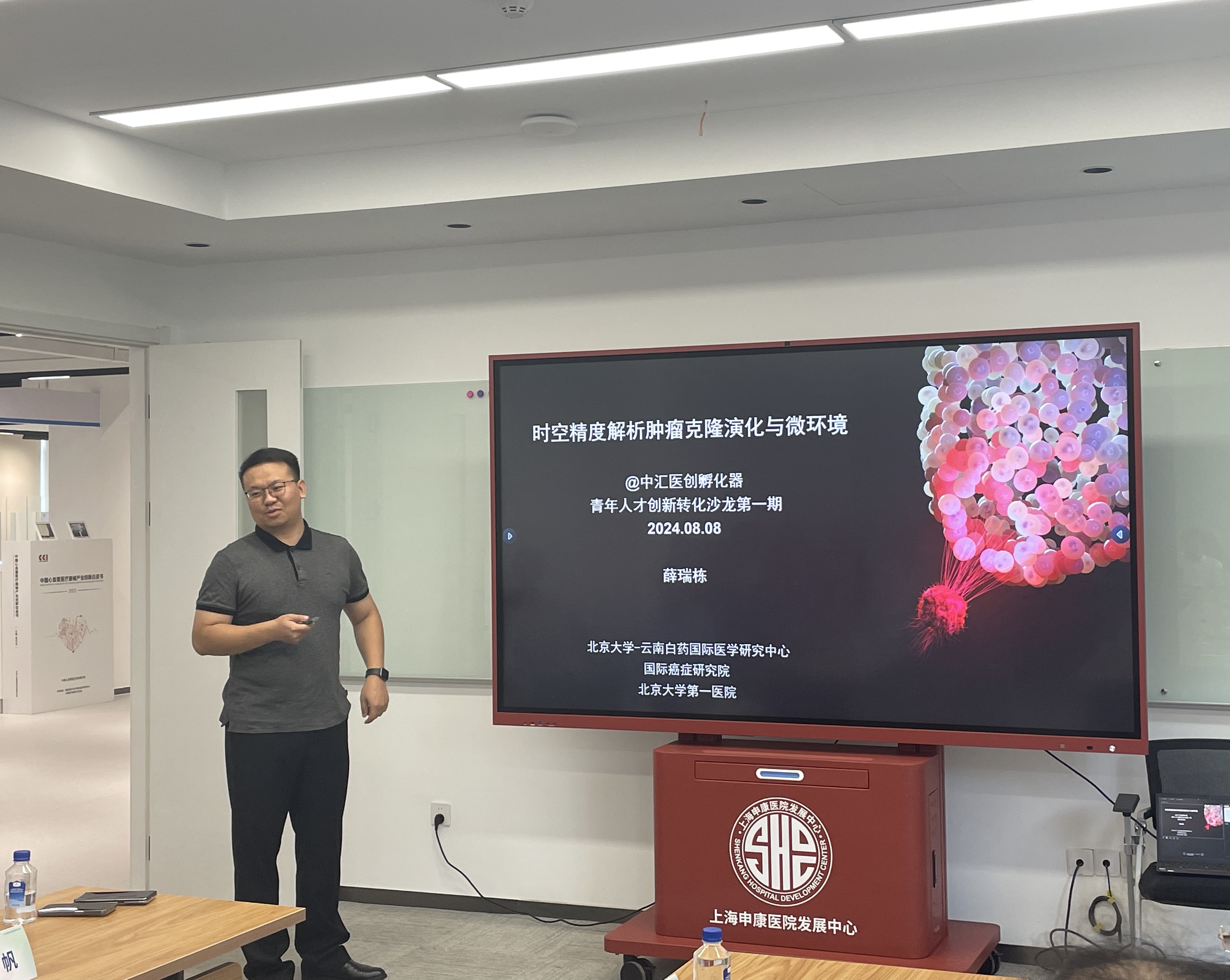
In the final discussion session, the young clinical researchers in attendance conducted in-depth discussions on the report content shared by the two experts. Everyone expressed that the reports of the two experts were highly forward-looking, detailed in content, and easy to understand, and benefited greatly from them. At the same time, everyone actively exchanged experiences and ideas on the transformation of scientific research achievements, explored new models, mechanisms, and paths for the transformation of scientific research achievements, and provided constructive suggestions for the development of incubation platforms.
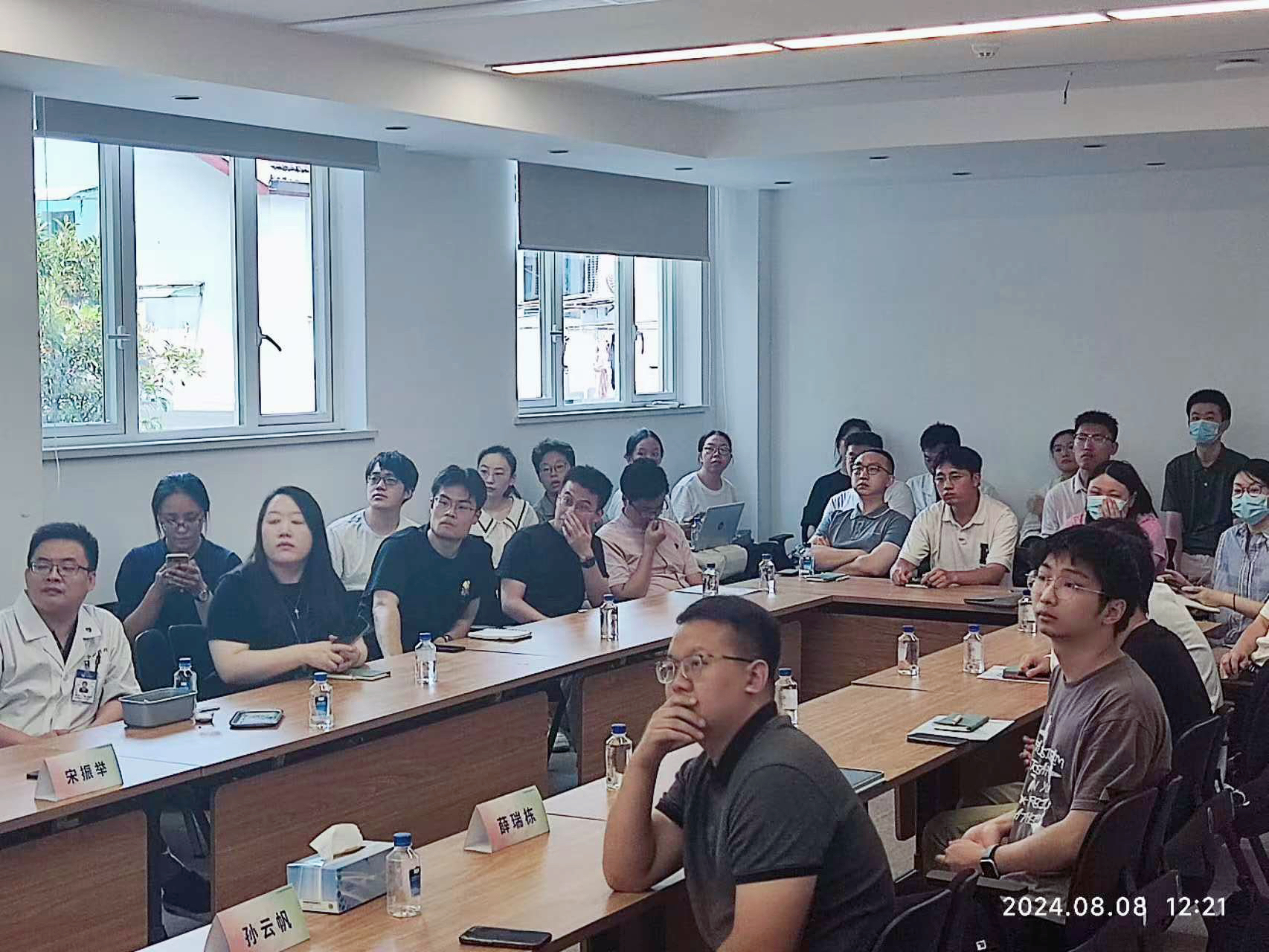
As an open and inclusive academic platform, this salon, with its relaxed and lively atmosphere, attracts outstanding individuals from various disciplinary backgrounds to gather together, building valuable bridges for communication and exchange. With the help of this platform, all parties can not only draw valuable academic achievements, but also make like-minded partners and jointly create more innovative paths that lead the future.
We believe that each salon will act as a catalyst, promoting the incubation and germination of innovative projects. These projects not only contain breakthrough scientific connotations, but also have enormous potential for practical applications, and will ultimately make positive contributions to the progress of medical technology and the well-being of the general public's health.
